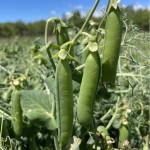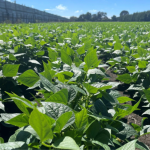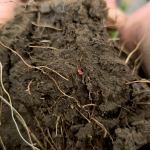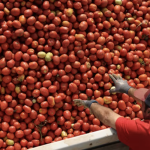Protecting Your Patch
Added 4 months ago

How do we keep New Zealand farms safe from devastating diseases like foot-and-mouth? And what steps can farmers take to strengthen biosecurity on their own land?
These questions were tackled by Beef + Lamb NZ’s Senior Manager for Technical Policy, veterinarian Will Halliday, at a recent Field Day.
Palm kernel, a common feed in the dairy industry, is imported from countries where foot-and-mouth is present. An outbreak here would cripple New Zealand’s food export industry.
Border Defence
Our first line of defence is MPI, with strict pre-border checks to prevent contamination. Once consignments reach the border, not everything can be checked, but random inspections and quarantines are used where needed.
Recent examples highlight the risk: Blackgrass seeds were found in imported ryegrass, and a pasture dieback disease in Australia—where grass dies and never regrows—remains under investigation. With New Zealand supplying 40% of the world’s carrot seed, strict border control is non-negotiable.
Farm-Level Protection
Strong biosecurity begins at the farm gate. Beef + Lamb NZ has developed guidelines with seven key intervention points:
-
Track stock movements using the NAIT system and ASD forms. Mycoplasma bovis was only eradicated because records existed nationwide.
-
Quarantine new stock for 7–14 days. Check their TB status, vaccination history, parasite levels, and drench resistance.
-
Breed for resistance to diseases such as facial eczema.
-
Control entry: Ensure machinery, tools, and footwear are clean. Provide PPE where necessary.
-
Monitor people and vehicles: visitors, contractors, and equipment can carry weed seeds or diseases.
Human Health Risks
Leptospirosis is still a threat, with over 100 cases annually. It spreads via animal urine and rodent contamination, often affecting dairy workers. Good hygiene, protective clothing, and vaccination where appropriate are critical.
Community and Environmental Safeguards
Farmers are encouraged to:
-
Maintain boundary fences.
-
Form catchment groups to share knowledge and coordinate pest and disease control.
-
Dispose of animal waste properly, preventing scavengers from accessing offal pits. Offal for dogs should be cooked or frozen for 10 days to eliminate hydatids.
-
Provide clean water and quality feed to strengthen animal immunity.
-
Avoid feeding pig or poultry food to ruminants, which risks diseases like BSE (‘mad cow disease’).
-
Where possible, use a single farm entry point for easier monitoring.
Raising Awareness
Beef + Lamb NZ also provides downloadable biosecurity signage to remind all visitors of the importance of protecting your patch.
Join the conversation
Be the first to leave a comment.
Leave a comment
All comments are reviewed before they are published on the website. Your email address will not be published.



Community Engagement and Knowledge Sharing Strengthen the Carbon Positive Project

Are We Changing Soil Carbon Yet? Three Years In, the Jury’s Still Out

Farewell to Trustee Phil Schofield – A Foundational Leader of the HBFFCT

